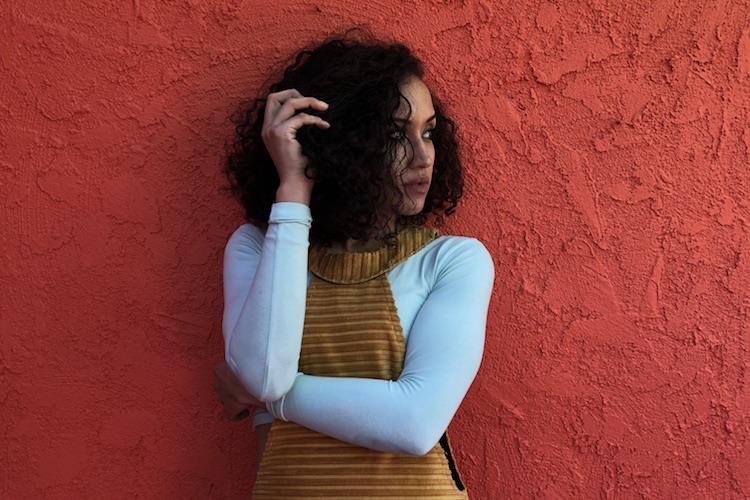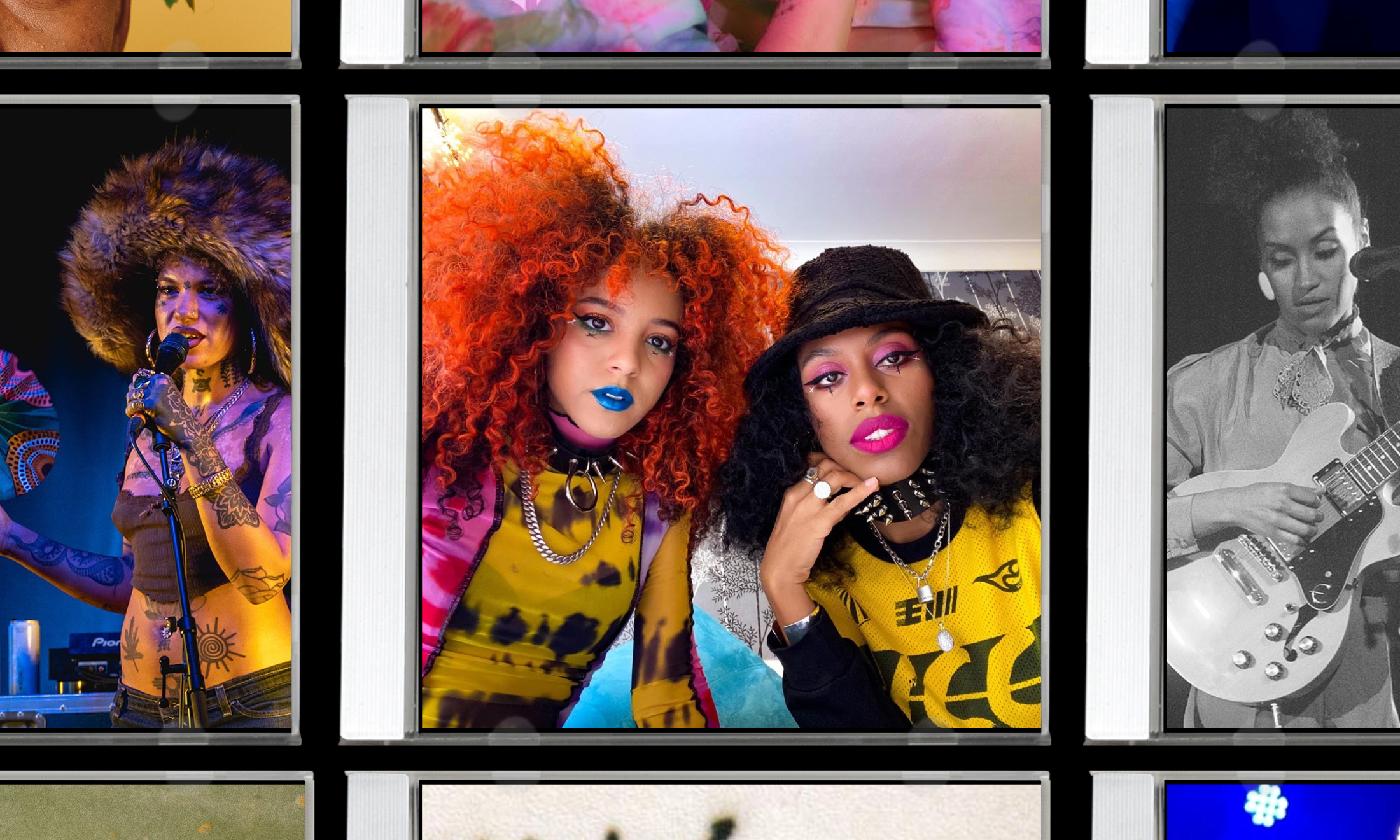
It’s been two years since the release of Kadhja Bonet’s arresting debut LP The Visitor, which saw the LA-native deliver to us her inimitable sound – timeless, rich and winding. Over 8 tracks, Bonet layered delicate vocals into soulful, almost orchestral arrangements, and has since held our keen attention. Her latest sophomore album Childqueen again delivers us into another realm, and seems to unfurl a bit like a Russian nesting doll.
Childqueen reaches towards a primal self, revealing slightly more of Bonet’s persona as it progresses. From the three tracks so far released (‘Mother Maybe’, ‘Delphine’, ‘Another Time Lover‘), Bonet appears to have expanded the world in which her music moves. Building on her multi-layered instrumentation – fortifying basslines, stretching synths to the reaches of psychedelia – while also pronouncing her voice, its dexterity and disarming clarity, just a little more. Musically, Bonet sits beside no one.
Around 92% of the instruments on the album are played by Kadhja herself, not to mention writing, producing, mixing. She even draws the album art work by hand. We spoke briefly as she passed through Europe by way of Shoreditch a few months back. At one point, she noted a deep sense of comfort she’s always found in “the tactile”, which might give reason for her self-sufficiency: “My earliest memories of myself have been, ‘I need to make things with my hands.’ I have this weird intense need to feel things, a sort of textural need.”
She’s relaxed, considered, and gently refusing of a narrative she’s aware has begun to attach itself to her.
gal-dem: It’s been two years since The Visitor – and now you’re about to realase, Childqueen. Has the writing process for this album been continuous for you?
Kadhja Bonet: It was really on and off. The majority of it was recorded in my apartment in Los Angeles, with some studio dates here and there – London, a few in Berlin, Amsterdam, Copenhagen, Paris.
Do you think that changed how some of the songs turned out?
Totally, every place had different toys, different gear. I could play with things – new sounds and textures – and discover things that way.
In the album’s opening track, Procession, you sing a few lines in French. What made you want to use a different language?
Sometimes I think not every language is suited to express everything. And I think language – it changes the colour and meaning of things so much. It’s like a frame you can’t really bend… or you can to a certain extent, but then there are these sonic, textural and conceptual limitations. I tried the line so many ways and it always felt forced. And then I tried it in French and was like “Oh! That has the lilt that I meant.”
Your voice has such a distinct quality, how long did it take you to figure it out?
I started singing seven years ago and I’m still figuring it out. It’s something I’m still very insecure about. It’s not something that’s really consistent for me, or reliable yet. I’ll get back to you when I feel like I’ve figured it out.
You’ve mentioned in the past that you went to film school. What made you want to do that, and what made you realise it wasn’t for you?
Both good questions. My first love was actually running, and then I tore my achilles and had to kind of re-decide what I wanted to do with myself. At some point I realised that I loved the idea of being able to incorporate social messaging subtly, and I thought film was the way to do that, so I got a little fixated. I went to USC which is a really Hollywood cookie-cutter school, and as a woman of colour that wants to do that type of work it was a really weird fit. I even had teachers tell me that I was in the wrong place.
Overtly?
Yeah, overtly. It was heart-wrenching to be honest. I felt really disconnected, I didn’t like how formulaic the structure was, they really emphasised the “rules of filmmaking”, and that was when I got really lost. Like, “I’m not making art anymore, I’m not being me anymore”.
So, the switch to music…
A friend randomly gave me their guitar, and it just opened up a whole world that I didn’t really know was there for me. I grew up playing classical violin and put it down when I went to school. So I had the sort of musical basics, but guitar was a totally different tool than violin in terms of song writing.
If you had to introduce your music to someone, would there be a song or particular performance you’d share with them?
It does happen that I have to show people what I do, and when I have to, usually the first thing I send is ‘Second Wind’. It’s the song on Childqueen, and of my work, that feels the most like me, and that I feel like I got the closest to. I wrote the whole thing in one sitting, and it was pretty damn close to what it is now. It was like a friend that had been living in me my whole life. That’s the one I feel I needed the most, it’s a song that’s become kind of my personal anthem, so that’s the first thing I play people.
How do you feel about interviews, or having people interpret you as a person?
I’ve always wanted to preserve some privacy and anonymity, just for it to be about the music. I feel like the more of my identity I share, the more limited people think I am as a person. I know right now that I’m largely painted as some weird multi-instrumental virtuoso, when I’m not. I can play violin and viola, I can get by on other things, I’m not a genius, and now I have this thing to live up to where I go to perform and people think I’m going to be Prince or something! Like, nah dude that’s not me, I just tell stories. If you want a virtuoso go to Kamasi [Washington]’s show, go to Thundercat’s show – that’s not here.
Do you try and do that for people you admire? Avoid their backstory?
Yeah, I’m not googling people’s backstories. But it’s not like I’m actively avoiding it, it just doesn’t interest me. I’m not interested in people, I’m interested in their art.
That reminds me of, I can’t remember which filmmaker, but in an interview they said “People always expect me to talk about the film – when the film is the talking.”
Exactly. That’s exactly how I feel. Everything that you need to know about the song, I put in the song. And what you take from it is going to be different from what I shared. I want you to have your own experience with it.
Childqueen is out now on Fat Possum Records/OBE.





